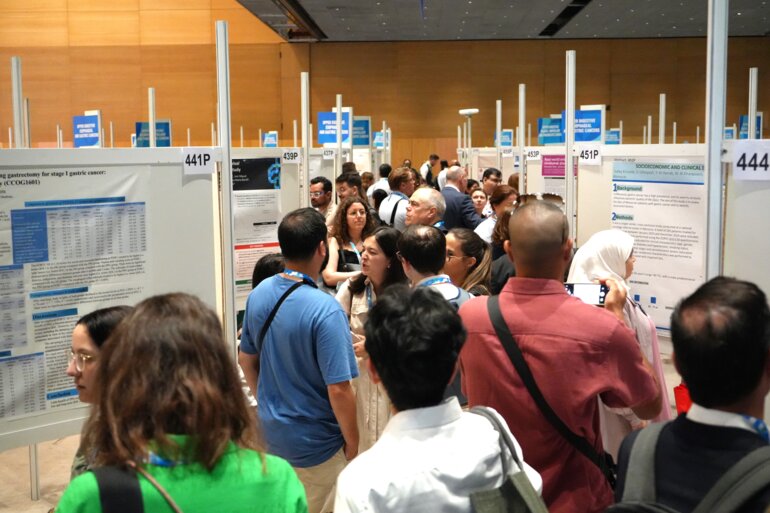
ctDNA testing may help refine surveillance strategy for colorectal cancer
Study findings show that ctDNA is a stronger biomarker than carcinoembryonic antigen to select patients who may benefit from metastasis-directed therapy

Study findings show that ctDNA is a stronger biomarker than carcinoembryonic antigen to select patients who may benefit from metastasis-directed therapy

Study indicates that PARP inhibition could extend treatment options for patients with biliary tract cancers

Randomised trials and real-world data propel the anti-EGFR rechallenge approach towards standard of care, but more solid evidence is needed

The availability of simpler, less-invasive methodologies may help to encourage participation in secondary prevention programmes

Despite greater attention being given to treatment effects on patient wellbeing, the high heterogeneity of methodologies still limits the usefulness of QoL assessment

Data from the TALENTACE trial add to growing evidence supporting the combination of immunotherapy plus anti-VEGF component with TACE

Newer technologies build on current knowledge to provide greater insights in the molecular landscape

Encouraging data were presented for FGF19-positive tumours and those with worse hepatic function, performance status or advanced vascular invasion

Preliminary results revealed that the combination of claudin 18.2/4-1BB bispecific antibody with nivolumab and mFOLFOX was also well tolerated

A system integrating computer tomography scans and pathological markers offers promise to personalise adjuvant therapy
This site uses cookies. Some of these cookies are essential, while others help us improve your experience by providing insights into how the site is being used.
For more detailed information on the cookies we use, please check our Privacy Policy.
Necessary cookies enable core functionality. The website cannot function properly without these cookies, and you can only disable them by changing your browser preferences.